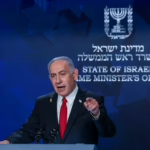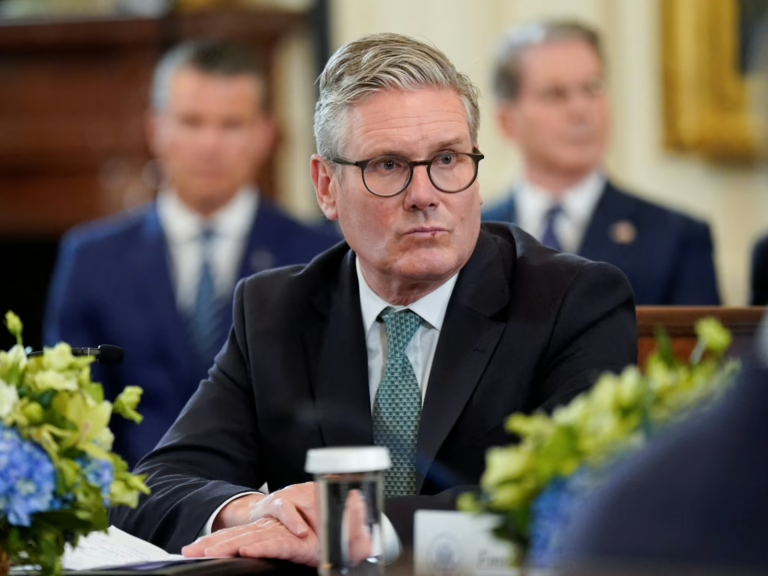Canada, the United Kingdom, and Australia have officially acknowledged Palestinian statehood, a gesture largely seen as symbolic in response to Israel’s ongoing military operations in Gaza and its territorial encroachments in the occupied West Bank.
Following these declarations on Sunday, additional countries such as France and Portugal are anticipated to extend their recognition of Palestine in the near future.
Israel has reacted strongly to these developments. Just before the announcements, Shosh Bedrosian, spokesperson for Prime Minister Benjamin Netanyahu, condemned the move as “absurd” and described it as “a reward for terrorism.”
At a rally in occupied East Jerusalem on September 15, Netanyahu reaffirmed his stance, declaring to supporters that “there will be no Palestinian state.”
Although the recognition by Canada, the UK, and Australia captured global headlines, experts caution that this is largely a symbolic act amid the ongoing suffering, killings, and forced displacement of hundreds of thousands of Palestinians. Nonetheless, it carries significant diplomatic weight.
“This recognition is important because these close US allies have traditionally withheld it until after a negotiated settlement,” explained Rida Abu Rass, a Palestinian political analyst. “Their decision to break ranks further isolates Israel, which is a meaningful development.”
Coinciding with the recognition announcements, Israeli strikes on Gaza resulted in the deaths of at least 55 Palestinians on Sunday alone, with 37 casualties reported in Gaza City amid intensified military assaults.
Symbolic Recognition or Real Change?
Many analysts remain skeptical that this recognition will translate into tangible improvements for Palestinians enduring Israeli military aggression.
Since October 2023, Israeli operations in Gaza have reportedly caused over 65,000 deaths and injured more than 166,000 people, figures that some experts believe are underreported. The Hamas-led attacks on Israel on October 7, 2023, resulted in 1,139 Israeli fatalities and approximately 200 hostages taken.
Meanwhile, in the occupied West Bank, violence by Israeli forces and settlers has claimed over 1,000 Palestinian lives, as Israel threatens full annexation of the territory.
Despite widespread condemnation of Israel’s campaign-labeled by many gaza-hospital-attack/” title=”Fury Erupts as …s 'Double-Tap' Strike on … Hospital Kills Five Journalists”>human rights organizations and experts as genocidal-there is little expectation that the violence will abate soon.
“Without concrete measures such as sanctions, arms embargoes, or the establishment of a no-fly zone enforced by an international coalition, I remain doubtful about any positive change,” said Chris Osieck, an independent researcher involved in investigations on the Israel-Palestine conflict.
Mohamad Elmasry, a professor at the Doha Institute for Graduate Studies, described the recognition as largely symbolic. “These governments face mounting pressure both internationally and domestically. This move allows them to appear responsive without committing to substantive policy shifts,” he noted.

Nonetheless, formal recognition enables these countries to establish diplomatic relations with the Palestinian Authority, including appointing ambassadors. The UK, for instance, will officially recognize Husam Zomlot as the Palestinian ambassador.
Zomlot emphasized the significance of this step, stating, “This overdue recognition ends Britain’s denial of the Palestinian people’s fundamental right to self-determination, freedom, and sovereignty in their homeland.”
He added, “It represents a crucial move toward justice and peace, addressing historical injustices such as Britain’s colonial legacy, the Balfour Declaration, and its role in Palestinian dispossession.”
Path to International Integration
Palestine already enjoys recognition from a majority of the global community. With these recent endorsements, only a few countries-including the United States, some European and Baltic nations, South Korea, and Japan-have yet to recognize Palestinian statehood.
Despite widespread recognition, Palestine remains a non-member observer state at the United Nations and lacks full membership privileges.
“Recognition alone does not grant Palestine new rights within the UN or access to additional intergovernmental bodies without US backing,” Abu Rass explained. “Full UN membership requires Security Council approval, which is unlikely due to the US veto.”
Still, this recognition could serve as a foundational step toward broader international acceptance.
International pressure on Israel to halt its Gaza offensive has intensified, especially from European nations. Boycott movements are gaining traction, potentially leading to Israel’s exclusion from events like Eurovision and international sports competitions.
The European Union has also considered imposing higher tariffs on Israeli products and sanctioning certain Israeli officials.
“While recognition doesn’t directly alter Israel’s conduct in Gaza, it signals a readiness among these countries to consider impactful measures such as mutual arms embargoes-halting both arms sales to Israel and purchases from Israeli manufacturers,” Abu Rass noted.
Political Calculations and Domestic Pressures
Experts suggest that Western governments, after months of deliberation, are using recognition as a form of censure against Israel’s actions in Gaza and the West Bank. This is coupled with conditional support for Palestinian statehood from some quarters.
These leaders face complex domestic dynamics, balancing pressure from pro-Israel lobby groups linked to establishment parties against growing public demands for decisive action to end the violence.
“This development reflects mounting domestic pressure on center-left governments,” Abu Rass said. “It’s a gradual response to increasing liberal dissatisfaction and serves as a low-risk way to appease constituents.”
“In essence, they are preserving their political image,” he added.
In July, UK Prime Minister Keir Starmer pledged to recognize Palestine unless Israel took “substantive steps” to cease hostilities in Gaza. On Sunday, he reiterated that the recognition reflects current political realities in the region.
“This move aims to advance peace efforts,” Starmer stated. “It comes now because the prospect of a two-state solution seems more distant than it has in years.”
Australia’s recognition also carries conditions. Prime Minister Anthony Albanese remarked, “Further diplomatic engagement, including embassy openings, will depend on the Palestinian Authority’s progress on reforms.”
A Historical Responsibility
Over a century ago, the British government issued the Balfour Declaration, endorsing a “national home for the Jewish people” in Palestine.
Given the UK’s longstanding alliance with Israel and its role in Palestinian displacement, some view Britain’s recognition of Palestine as an acknowledgment of its historical complicity.
“Britain carries a unique responsibility to support a two-state solution,” UK Foreign Secretary David Lammy asserted during a UN speech in July.
Despite the symbolic weight of this recognition, analysts remain cautious about its potential to alter the status quo.
“Even universal recognition won’t change Palestinians’ reality unless the Israeli occupation ends,” Abu Rass emphasized. “International pressure must extend beyond recognition to include sanctions, diplomatic isolation, war crimes prosecutions, and cultural boycotts.”

















